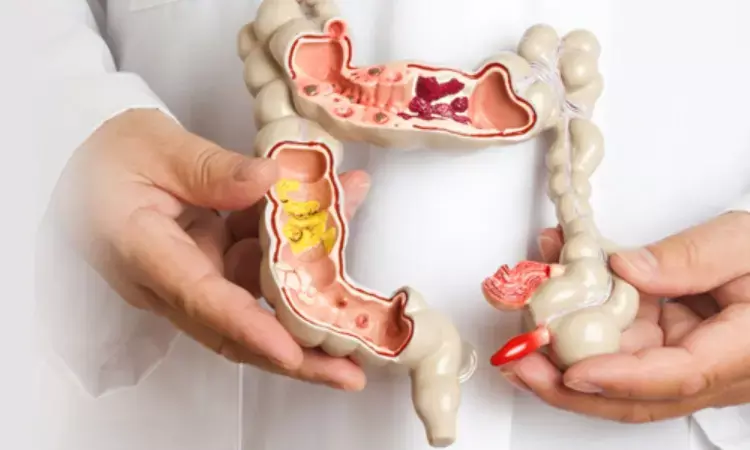- Home
- Medical news & Guidelines
- Anesthesiology
- Cardiology and CTVS
- Critical Care
- Dentistry
- Dermatology
- Diabetes and Endocrinology
- ENT
- Gastroenterology
- Medicine
- Nephrology
- Neurology
- Obstretics-Gynaecology
- Oncology
- Ophthalmology
- Orthopaedics
- Pediatrics-Neonatology
- Psychiatry
- Pulmonology
- Radiology
- Surgery
- Urology
- Laboratory Medicine
- Diet
- Nursing
- Paramedical
- Physiotherapy
- Health news
- Fact Check
- Bone Health Fact Check
- Brain Health Fact Check
- Cancer Related Fact Check
- Child Care Fact Check
- Dental and oral health fact check
- Diabetes and metabolic health fact check
- Diet and Nutrition Fact Check
- Eye and ENT Care Fact Check
- Fitness fact check
- Gut health fact check
- Heart health fact check
- Kidney health fact check
- Medical education fact check
- Men's health fact check
- Respiratory fact check
- Skin and hair care fact check
- Vaccine and Immunization fact check
- Women's health fact check
- AYUSH
- State News
- Andaman and Nicobar Islands
- Andhra Pradesh
- Arunachal Pradesh
- Assam
- Bihar
- Chandigarh
- Chattisgarh
- Dadra and Nagar Haveli
- Daman and Diu
- Delhi
- Goa
- Gujarat
- Haryana
- Himachal Pradesh
- Jammu & Kashmir
- Jharkhand
- Karnataka
- Kerala
- Ladakh
- Lakshadweep
- Madhya Pradesh
- Maharashtra
- Manipur
- Meghalaya
- Mizoram
- Nagaland
- Odisha
- Puducherry
- Punjab
- Rajasthan
- Sikkim
- Tamil Nadu
- Telangana
- Tripura
- Uttar Pradesh
- Uttrakhand
- West Bengal
- Medical Education
- Industry
Prucalopride fails to reduce recovery time after colorectal surgery

A new study published in the British Journal of Surgery shows that after elective colorectal surgery, prucalopride did not shorten the amount of time it took for gut function to fully recover.
Following colorectal surgery, delayed gut function and prolonged postoperative ileus (PPOI) cause a delay in recovery. A selective serotonin-4 receptor agonist, prucalopride may increase gastrointestinal motility. This double-blind, placebo-controlled experiment was carried out by Tony Milne and colleagues with the main goal of determining if preoperative and postoperative prucalopride administration shortens the recovery period for patients following elective colorectal resection. The secondary goal was to find out if prucalopride lowers the incidence of PPOI following elective colorectal surgery.
This multicenter study compared the effects of 2 mg of prucalopride to a placebo in individuals having an elective colorectal resection. Colostomy creation was permitted but patients with inflammatory bowel illness and intended ileostomy development were not eligible. The trial drug was administered two hours prior to surgery and every day for up to six days following surgery. The time it took for the stool to pass and the diet's tolerance were the main outcomes (GI-2). Blocks of 10 participants were distributed in a 1:1 ratio.
The key findings of this study were:
1. 148 individuals from 2 tertiary hospitals in New Zealand were randomized (74 in each arm).
2. Between the prucalopride and placebo groups, there was no change in the median time to GI-2: 3.5 (i.q.r. 2-5) versus 4 (3-5) days, respectively (P = 0.124).
3. Prucalopride reduced the median time to stoma passing but not the median time to diet tolerance or hospital stay.
4. Prucalopride reduced the median duration to GI-2 in individuals who underwent laparoscopic surgery: 3 (2-4) days as opposed to 4 (3-5) days for the placebo (P = 0.012).
5. Both groups had comparable rates of PPOI, complications, and negative events.
In certain individuals undergoing elective minimally invasive colorectal surgery, prucalopride may be useful in reducing the period before postoperative gut function returns.
Reference:
Milne, T., Liu, C., O'Grady, G., Woodfield, J., & Bissett, I. (2022). Effect of prucalopride to improve time to gut function recovery following elective colorectal surgery: randomized clinical trial. In British Journal of Surgery. Oxford University Press (OUP). https://doi.org/10.1093/bjs/znac121
Neuroscience Masters graduate
Jacinthlyn Sylvia, a Neuroscience Master's graduate from Chennai has worked extensively in deciphering the neurobiology of cognition and motor control in aging. She also has spread-out exposure to Neurosurgery from her Bachelor’s. She is currently involved in active Neuro-Oncology research. She is an upcoming neuroscientist with a fiery passion for writing. Her news cover at Medical Dialogues feature recent discoveries and updates from the healthcare and biomedical research fields. She can be reached at editorial@medicaldialogues.in
Dr Kamal Kant Kohli-MBBS, DTCD- a chest specialist with more than 30 years of practice and a flair for writing clinical articles, Dr Kamal Kant Kohli joined Medical Dialogues as a Chief Editor of Medical News. Besides writing articles, as an editor, he proofreads and verifies all the medical content published on Medical Dialogues including those coming from journals, studies,medical conferences,guidelines etc. Email: drkohli@medicaldialogues.in. Contact no. 011-43720751


